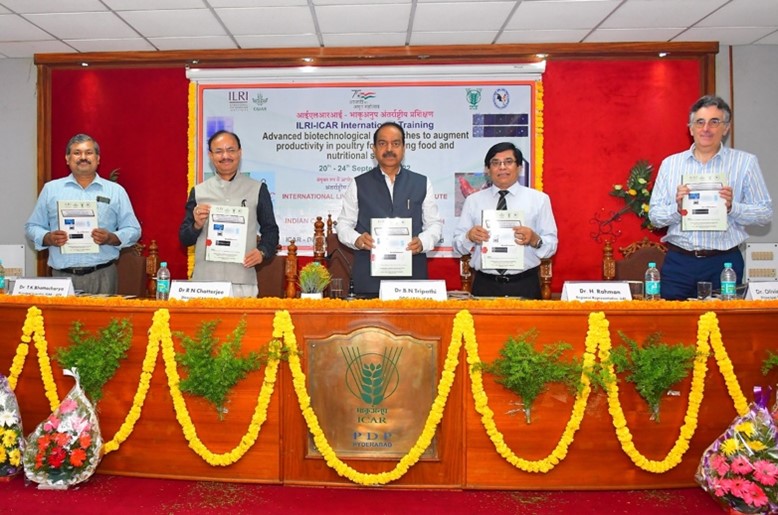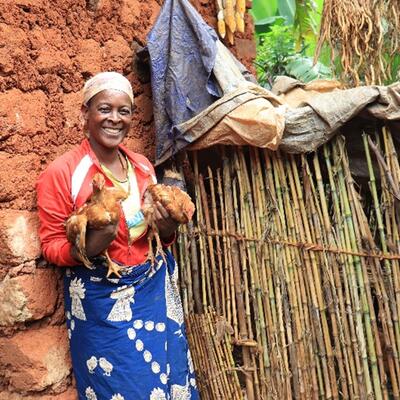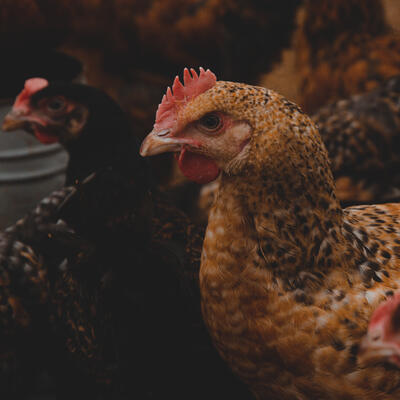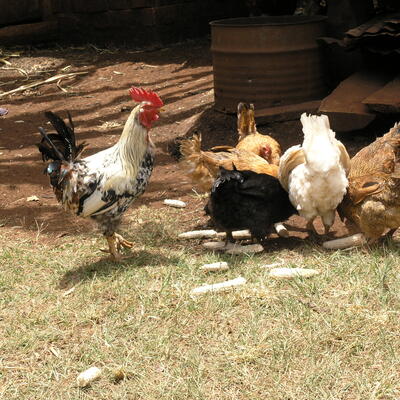
ICAR and ILRI training to enhance backyard poultry production for India’s food security
A collaboration between the Indian Council of Agricultural Research (ICAR) and the International Livestock Research Institute (ILRI) is supporting the development of backyard poultry production systems in India. Among other activities, the project is developing the indigenous chicken-specific single nucleotide polymorphism (SNP) chip for use in Indian indigenous chicken breeds.
Recently, the two organizations co-hosted an ‘Advanced biotechnological approaches to augment productivity in poultry for ensuring food and nutritional security’ course for scientists and veterinary staff from across the country to improve their technical capacity in poultry sector development.
Twenty-five participants attended the 20-24 September 2022 course in Hyderabad at ICAR’s Directorate of Poultry Research (ICAR-DPR).
In the opening speech, Himanshu Pathak, secretary, Department of Agricultural Research and Education (DARE) and director general of ICAR, said the training would develop the capacity of national and state staff, researchers and students to use advanced technologies to improve crop and livestock production. He thanked ILRI and CGIAR for their close collaboration with ICAR and their joint work for the welfare of people, animals and crops in India.
Bhupendra Nath Tripathi, deputy director general of animal sciences, said the collaborative projects undertaken by ILRI and ICAR included backyard poultry genomics, research on methane emission and its mitigation, animal disease economics, and feed and fodder development work.
Habibar Rahman, ILRI regional representative for South Asia, said the training program by ILRI and ICAR is providing training on an advanced biotechnological program for the poultry sector. He said the initiative could benefit from the exchange of poultry germplasm between India and African countries which have similar agro-climatic zones.
Noting that India and African countries have similar livestock rearing patterns, breeds and ecologies, Olivier Hanotte, principal scientist at ILRI, also called for stronger collaboration between India and Africa and policies to support sharing of poultry genetic resources for high-quality research and technology dissemination.
The five-day course covered the following topics:
- Animal production context in India
- Poultry as experimental animals and their rearing practices
- Backyard poultry production
- Genomics of poultry and current scenario in the world
- Poultry production system in India
- Genome sequencing approaches
- Illumina-based genome sequencing
- Development of SNP chip
- Genome data handling
- SNP analysis
- Genome-wide marker-assisted selection
- Transgenic approaches in animals
- Stem cell research in animals
- Genome editing through gene knock-in technology
- Other genomic technologies useful in animal research
Practical sessions in the course, which were held at the ICAR-DPR laboratories, included techniques for cell culture for E. coli, fibroblast cells and PGC, gene cloning, transfection experiments, sperm-mediated gene transfer, protein expression, protein isolation and purification, detection of proteins through SDS-PAGE, western blotting and ELISA, and genome editing in chicken.
Trainers included senior scientists from the Food and Agricultural Organization of the United Nations (FAO), ILRI and ICAR institutes. The training targeted young/mid-career scientists/faculty members of the national agricultural research system (NARS), researchers and veterinarians from 13 states in India. Directors and staff of ICAR institutes also attended the event.
Release of training manuals used in the training program (photo credit: ILRI/Roma Oli).
Himanshu Pathak distributing the certificates to a training participant (photo credit: ILRI/Roma Oli).
(The post was written by Kennady Vijayalakshmy, research and communications officer with ILRI in South Asia, with additional editing by ILRI’s Chi Nguyen and Paul Karaimu).






















